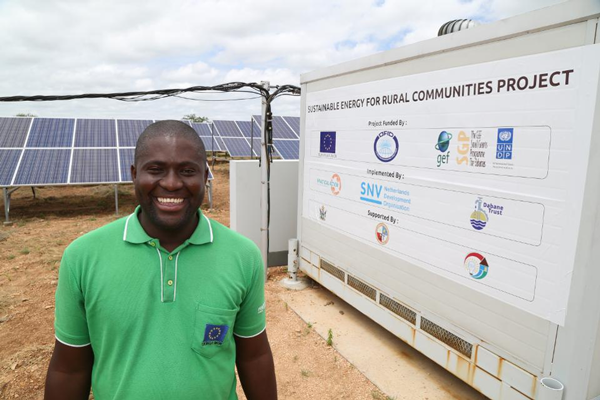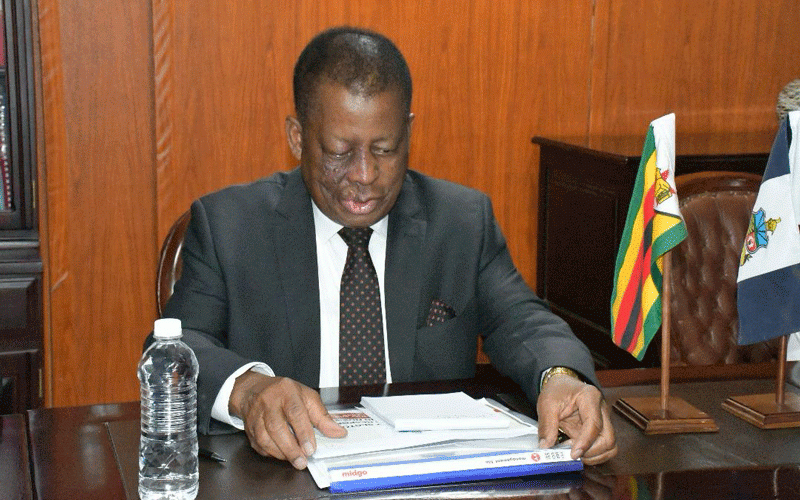

BY JAIROS SAUNYAMA
Zimbabwe is experiencing the worst ever electricity load shedding that has seen residents going for more than 18 hours without power.
The energy crisis that has been exacerbated by a decrease in water level at Kariba Dam as well as an ailing Hwange Power Station has had its negative impact on both the manufacturing and farming sector.
Many winter wheat farmers are struggling to cope with the power cuts and accessing alternative energy in the form of fuel is a daunting task due to its scarcity.
Despite the load shedding, a small community in Mashaba area in Gwanda are enjoying the benefits of exploiting the readily available sun with the 40km radius area enjoying the fruits of depending on renewable energy.
The schools, irrigation schemes and shops all lit following the establishment of the Mashaba Solar Mini Grid that was done as a pilot study by the European Union (EU) funded Sustainable Energy For Rural Communities (SE4RC) project that is erecting solar-powered decentralised mini-grids in isolated rural communities in Zimbabwe and Malawi.
The Gwanda solar mini grid that was completed in 2017 has 400 solar panels with each generating 255 watts of power at peak. The whole project is generating a total of 99kw after losses through transmission and is servicing a 40km radius through a 33kv power line.
Both the Zimbabwe and Malawi projects are funded to the tune of 7,1m euros (approximately $8.2m united states dollars and all mini grids will benefit about 30 000 people.
- Chamisa under fire over US$120K donation
- Mavhunga puts DeMbare into Chibuku quarterfinals
- Pension funds bet on Cabora Bassa oilfields
- Councils defy govt fire tender directive
Keep Reading
Speaking during a second renewable energy and power infrastructure investor conference held in Harare recently, Energy and Power Development minister Fortune Chasi admitted that it was high time the country turned to renewable energy to avert power shortages.
“Some of these gaps are set to be addressed in the draft of the national renewable energy and biofuels policies. The key provisions in these polices are to have a strong institutional and regulatory framework for promoting up-take of renewable energy and to reduce project development timelines by addressing the risks and simplifying approval process,” said Chasi.
A group of farmers from Nemaire in Makoni district, Manicaland province have been productive on their pieces of land through embracing renewable energy technologies. These farmers have solar water pumps and solar powered sprinklers among other equipment that ensures continuous irrigation on their pieces of land.
Renewable Energy Association of Zimbabwe (REAZ) chairman, Isaiah Nyakusendwa said Zimbabwe should utilise plenty of sunshine to improve people’s lives.
“We have plentiful solar, we have plenty of water, there is a whole lot of things that we can do to improve the livelihoods of the communities. It is high time the relevant authorities prioritise adopting renewable energy,” Nyakusendwa said.
“Renewable energy is sustainable and accessible to people in the communities. The excitement is there. There is need for more awareness campaigns in the communities.”
According to the World Energy Outlook 2000, Zimbabwe has a national electrification rate of 79% of urban households while, rural electrification is still below 19% and only 32% of the population has access to modern energy.
Government through the Energy ministry has been receiving proposals from companies to establish solar power mini grid plants, but most of the projects have failed to kick off while some sponsored organisations and individuals have abused the funds.
In Marondera, a London-based solar energy company Green Rhino has been struggling to set up its 150MW solar plant at Rufaro farm due to government red tape. The company, also known as De Opper Trading has for the past seven years failed to complete the project despite the availability of money and expertise.
Green Rhino that is being run by German solar experts has successfully implemented solar power projects at a large scale in South Africa, Namibia, Sierra Leone, Ghana, Nigeria, Cameroon, India and Puerto Rico.
Today, Zimbabwe continues to experience darkness despite plenty of sunshine. The implementation of government policies towards adopting renewable energy will go a long way in dealing with power shortages.
The small community of Mashaba is currently enjoying the fruits of a solar powered system while about 150km away, Bulawayo the second largest city is grappling with massive power shortages.











